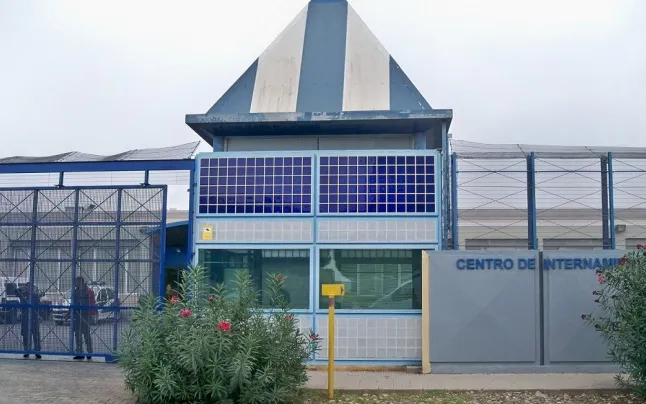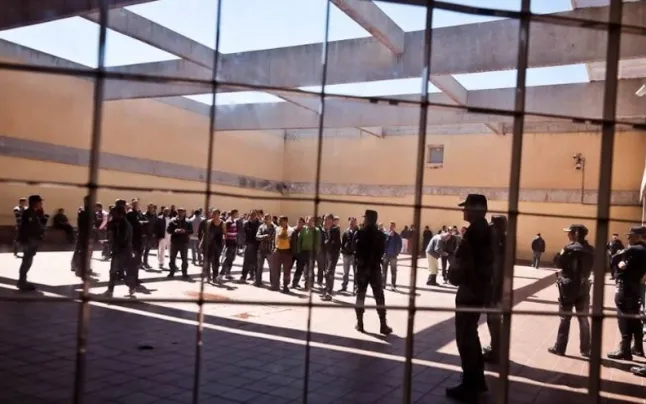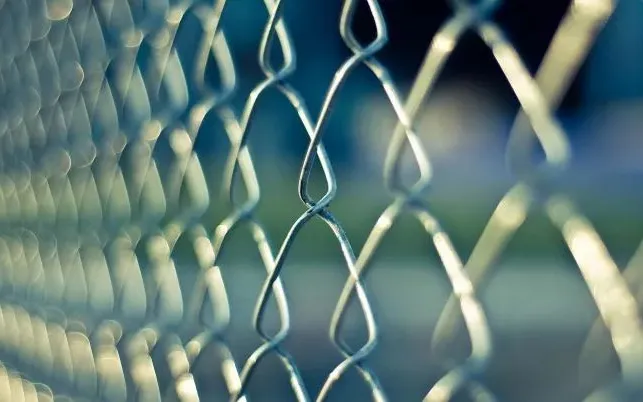Various organizations and groups encourage to mobilize against these spaces and demand an end to institutional violence.
"We need a great mobilization in front of the Internment centres for foreigners (ICD, CIE in catalan), it's very important that the whole society demonstrates because we are all responsible for respect for human rights and it's very serious what is happening", said Mercè Duch, one of the spokespersons for 'Tanquem els CIE' (Let's close the CIEs). Anti-racist collectives and human rights defenders hope that the street will boil over to protest against institutional violence and demand the closure of the CIE.
There are plenty of reasons to do so, say the initiative’s promoters. The last one, some images from the CIE cameras in the Zona Franca of Barcelona, published by TV3 and Eldiario.es and dating from last October 31 -the same month that the center reopened after the pandemic-, in what does the “cruel and inhuman treatment” look like, according to Irídia, to an inmate who was in solitary confinement for ten days for being in close contact with a positive for Covid.
The video shows seven police officers handcuffing the man and putting a helmet on his head and straps on his legs for at least three hours to prevent him from injuring himself. Shortly afterwards,a judge in Barcelona closed the case without even taking a statement from the complainant, who had already been deported to his country.
This is just the latest known case of a reality that worries organizations and groups that have been calling for the immediate closure of the CIEs for more than ten years. "This has always happened and unfortunately we have known many cases like this, such as the death in 2012 of Idrissa Diallo in the CIE of the Zona Franca, which gave rise to the start of the campaign 'Tanquem els CIE'" , says Mercè Duch, spokeswoman for the platform.
The pandemic has exacerbated rights violations in CIEs
In these more than ten years of struggle to close these "spaces of non-law", as defined by the movement, although the ultimate goal has not been achieved, some minor progress had been made in terms of conditions. of life of the interns, Duch explains. Progress that has come to nothing as a result of the pandemic. "The situation has been very blatantly used to pull back all the progress that had been made and cut even more rights, not only with regard to the CIEs, but with migration policy in general," warns Duch.
This has been denounced by various organizations and entities, which have drawn up a manifesto on the occasion of June 15, International Day Against ICDs, in which they demand the closure of these spaces where continuous violations of rights are committed, denouncing the opacity that surrounds and charges against European and state migration policy, also against the rejection by Congress of initiatives such as the non-law proposal promoted by migrant groups united in the movement #RegularizaciónYa, while calling for the repeal of the Organic Law 4/2000.
One of the points highlighted by the manifesto, which already has more than a hundred collective adherences, is that, since the reopening of the CIE in the Zona Franca in October, visits to relatives and organizations to help inmates have been systematically prevented. In addition, during the months it was open in 2020, up to six allegations of ill-treatment and torture by police officers were made to inmates.
For Mercè Duch, it's a demonstration of the involution of rights that the pandemic has led to: “It's a very serious situation because right now we know absolutely nothing of what is happening inside the CIE, this severe isolation leads people inside to a total disappearance”, she explains.
This fact has caused, says Duch, a situation of great anguish for the people who are locked up there, but also for their families, who are looking for their relative and cannot locate him, "they ask us and we can't give them an answer either because they don't give us this information", said the spokeswoman for 'Tanquem els CIE'.
A complaint that goes beyond the CIE
For all this, the groups and entities encourage citizens to attend to the demonstrations and hope that it will be a scream to reverse institutional violence and demand the closure of these spaces. "We are gathering a lot of people to promote joint action, every person and entity that claims to be democratic should mobilize because what is happening is very alarming," said Mercè Duch.
The mobilization and the manifesto, however, go beyond the situation of the CIEs and seek to focus on the urgent need for a paradigm shift in European and Spanish migration policy, ending mass deportations, put in the center people’s lives and avoid situations like the ones experienced on the Southern Border a few weeks ago.
"What happened first in the Canary Islands, then in Ceuta… we must make a very broad denunciation of migration policy and the extreme precariousness that affects migrants, we want to raise awareness because we need the whole society to get there and not look more to another side ”, concludes Duch.









Add new comment